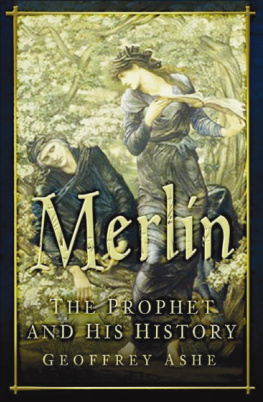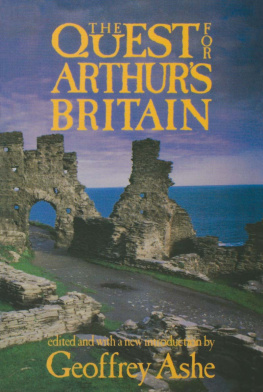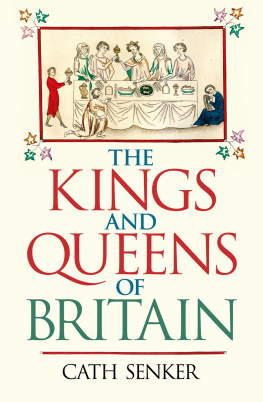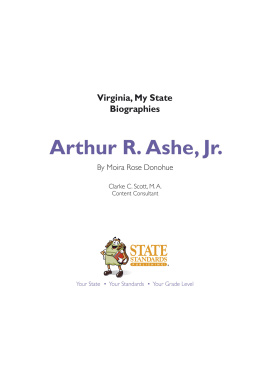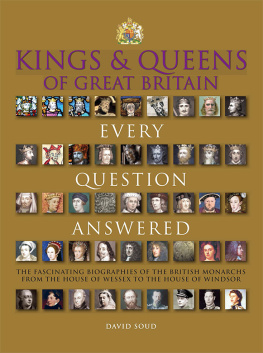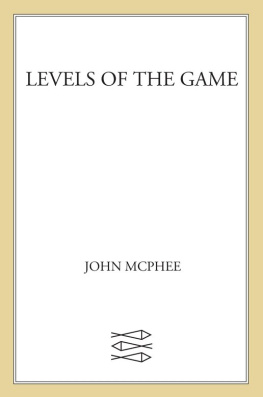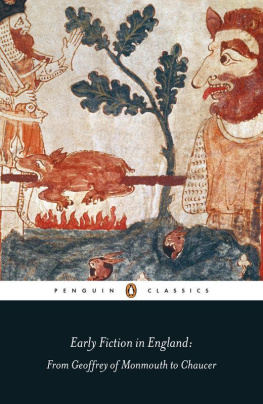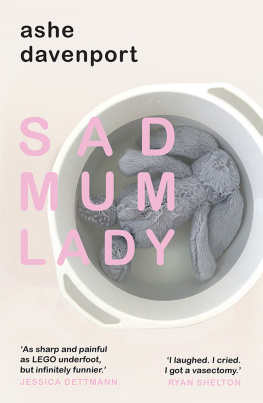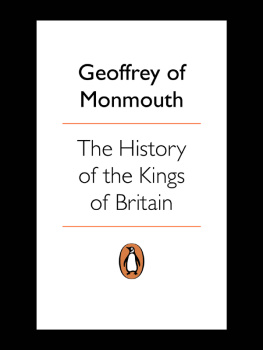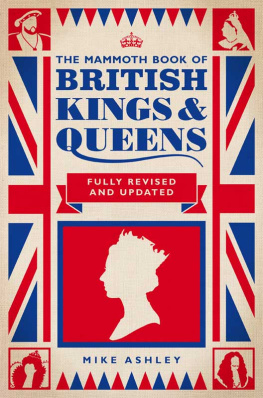Geoffrey Ashe - Kings and Queens of Early Britain
Here you can read online Geoffrey Ashe - Kings and Queens of Early Britain full text of the book (entire story) in english for free. Download pdf and epub, get meaning, cover and reviews about this ebook. year: 2005, publisher: Chicago Review Press, genre: Art. Description of the work, (preface) as well as reviews are available. Best literature library LitArk.com created for fans of good reading and offers a wide selection of genres:
Romance novel
Science fiction
Adventure
Detective
Science
History
Home and family
Prose
Art
Politics
Computer
Non-fiction
Religion
Business
Children
Humor
Choose a favorite category and find really read worthwhile books. Enjoy immersion in the world of imagination, feel the emotions of the characters or learn something new for yourself, make an fascinating discovery.
- Book:Kings and Queens of Early Britain
- Author:
- Publisher:Chicago Review Press
- Genre:
- Year:2005
- Rating:5 / 5
- Favourites:Add to favourites
- Your mark:
- 100
- 1
- 2
- 3
- 4
- 5
Kings and Queens of Early Britain: summary, description and annotation
We offer to read an annotation, description, summary or preface (depends on what the author of the book "Kings and Queens of Early Britain" wrote himself). If you haven't found the necessary information about the book — write in the comments, we will try to find it.
Kings and Queens of Early Britain — read online for free the complete book (whole text) full work
Below is the text of the book, divided by pages. System saving the place of the last page read, allows you to conveniently read the book "Kings and Queens of Early Britain" online for free, without having to search again every time where you left off. Put a bookmark, and you can go to the page where you finished reading at any time.
Font size:
Interval:
Bookmark:
Published in 1990, 1998 by
Academy Chicago Publishers
363 West Erie Street
Chicago, Illinois 60610
Copyright 1982, 1990 Geoffrey Ashe
Printed and bound in the U.S.A.
All rights reserved.
No part of this book may be reproduced
in any way without the express written
permission of the publisher.
Maps by Julia Anderson-Miller
Library of Congress Cataloging-in-Publication data
Ashe, Geoffrey
Kings and Queens of early Britain / Geoffrey Ashe.
p. cm.
Originally published: London: Methuen, 1982.
Contents: Includes bibliographical references.
ISBN 0-89733-347-0 (cloth)
ISBN 0-89733-469-8
1. Great BritainKings and rulers. 2. Great Britain-HistoryTo 1066. 3. Anglo-SaxonsKings and rulers.
4. BritonsKings and rulers. I. Title.
DA28.1. A84 1990
942.010922dc20
90-32536
CIP
Index
Following :
Following :
THIS BOOK IS EXACTLY WHAT ITS TITLE IMPLIES. It is not a social Or economic history, and does not aspire to be. It is about individuals who ruled in Britain, or are said to have done so, from the time of the earliest legendary names (Brutus the Trojan and King Lear, for instance) to the time of Alfred the Great in the ninth century A.D. The words king and queen must be understood in a broad sense. Not all these rulers had the precise royal title, or a hereditary claim, or even legitimate power. But all held sovereignty of some sort, in fact or fiction or the borderland that lies between.
A word about selection. In the centuries when Britain was divided into small kingdoms, it would be wearisome to list every known sovereign in every fraction of the island. I have chosen those who seem to me to emerge, however dimly, as personalities, or to have done things of importance. The resultant allocation of space may not always please. It may be felt, for instance, that there is too little about Scotland. The reason is not that I undervalue Scotland. The reason a regretted one is that Scotlands earliest history furnishes few rulers about whom it is possible to say very much. When clear-cut characters do begin to come forward, they have their place in the story.
Geographical terms, I am afraid, are sometimes anachronistic. Thus, the only simple way of defining parts of England in Roman times is by county names which did not come into use till long afterwards. There are problems with personal names as well, because the spellings vary, and with dates, because authorities often disagree by a year or two even in periods when the records look accurate. Here I can only make a choice, with a general warning that such hazards exist.
I shall not apologize for the attention given to legends. Quite apart from their own interest, they are a reflex and a reminder of the state of Britain throughout the period. Today we are accustomed to a country with a large population, densely packed together, documented in countless files and data-banks; a country of mass-media, detailed records, habitual travel and intercommunication. But in the whole stretch of time from misty antiquity to Alfred, Britain never had as much as a tenth of its present population. That alone, even apart from all additional factors, gives its society a profound otherness. Communities clustered differently in different periods, but always there were wide seldom-traversed spaces, always there were separations by dialect and by forest and swamp and wilderness. Few went far from home except minorities engaged in war, trade or other special business. And only a small percentage of the small population could read or write.
Even the rule of Rome did not fundamentally change this state of affairs. It did foster a sense of British unity, but after its withdrawal the recording of information continued to be meagre and its transfer over distances uncertain and sketchy. Where hard knowledge was mainly local, the art of the poets and storytellers was a major factor in any more-than-local consciousness. They reflected the nature of the British world and, in a sense, created and re-created it. They passed on some authentic facts; but they also passed on legends. With those inhabitants of the island whose forbears had been there longest, some of the legends reached back for many centuries. Furthermore, the corpus continued to develop, inspiring extraordinary new growths even hundreds of years later. Early Britain is not only a reality but a retrospective work of art. Many of the rulers presented to us are creatures of the imagination, partly or even wholly.
This is outstandingly true of a phase for which the legend-making rose to rare heights, the Arthurian age. Here a special note is required. I have written on this topic before, and now believe that I hit on the key to the mystery a long while ago and put it in From Caesar to Arthur (1960), without grasping its significance. A belated pursuit of my own suggestion has led me to revise my ideas. Passages in of America (April 1981, pages 301323). That article substantiates various statements made here, and includes a number of points which are omitted, though, on the other hand, I also develop a few points made only briefly in the article.
I have presented the main case in a lecture at Keele University, and in a paper read at the Thirteenth International Arthurian Congress, held at the University of Glasgow in August 1981. All comments made to me by professional scholars have been taken into account. I would like to thank Professor A. O. H. Jarman and Professor Leon Fleuriot for help and advice, while making it clear that they are not to be held responsible for the proposed reinterpretation of Arthurian origins.
The translation of Geoffrey of Monmouths The History of the Kings of Britain (Penguin) is by Lewis Thorpe; the translation of Bedes A History of the English Church and People (Penguin), by Leo Sherley-Price; the translation from Nenniuss History of the Britons, by Leslie Alcock; the translation of Gododdin, from A Celtic Miscellany (Routledge, and Penguin, paperback), by Kenneth Jackson; and the translations of a Welsh poem and from Alcuin, both from The Age of Arthur (Weidenfeld and Nicolson), by John Morris.
NOTE TO THE 1990 EDITION:
Since this book was first published in Britain in 1982, archaeologists have become less inclined to interpret Britains prehistory in terms of clear-cut invasions (cf. ). The picture is not radically changed but it may have become less clear than is presented here.
On the other hand, what I suggest about the origin of the Arthurian legend has been more widely aired since 1982 and presented in books, articles and academic courses in which it has found corroboration by other scholars. Professor Barbara Moorman has supported this theory with valuable data from medieval chronicles, revealing a neglected Arthur tradition in close agreement with it. And this wider acceptance has led to its inclusion in the standard reference book on this subject, The Arthurian Encyclopedia, edited by Norris J. Lacy. As far as I know, no effective criticisms have been offered.
IN 55 B.C., JULIUS CAESAR CROSSED THE CHANNEL. In the thousand years or so before that, seventy-six monarchs are reputed to have reigned over Britain. We know the names of most of them. They are all imaginary.
Britain owes her pre-Roman dynasties to a book which was widely supposed, through the Middle Ages and after, to be true. Even in modern times it still has the power to influence historical writing, however often historians may say otherwise. As for its impact on literature, that can never be undone. Malorys story of King Arthur has its ancestry in this book. Spenser wove a summary of it into
Next pageFont size:
Interval:
Bookmark:
Similar books «Kings and Queens of Early Britain»
Look at similar books to Kings and Queens of Early Britain. We have selected literature similar in name and meaning in the hope of providing readers with more options to find new, interesting, not yet read works.
Discussion, reviews of the book Kings and Queens of Early Britain and just readers' own opinions. Leave your comments, write what you think about the work, its meaning or the main characters. Specify what exactly you liked and what you didn't like, and why you think so.


